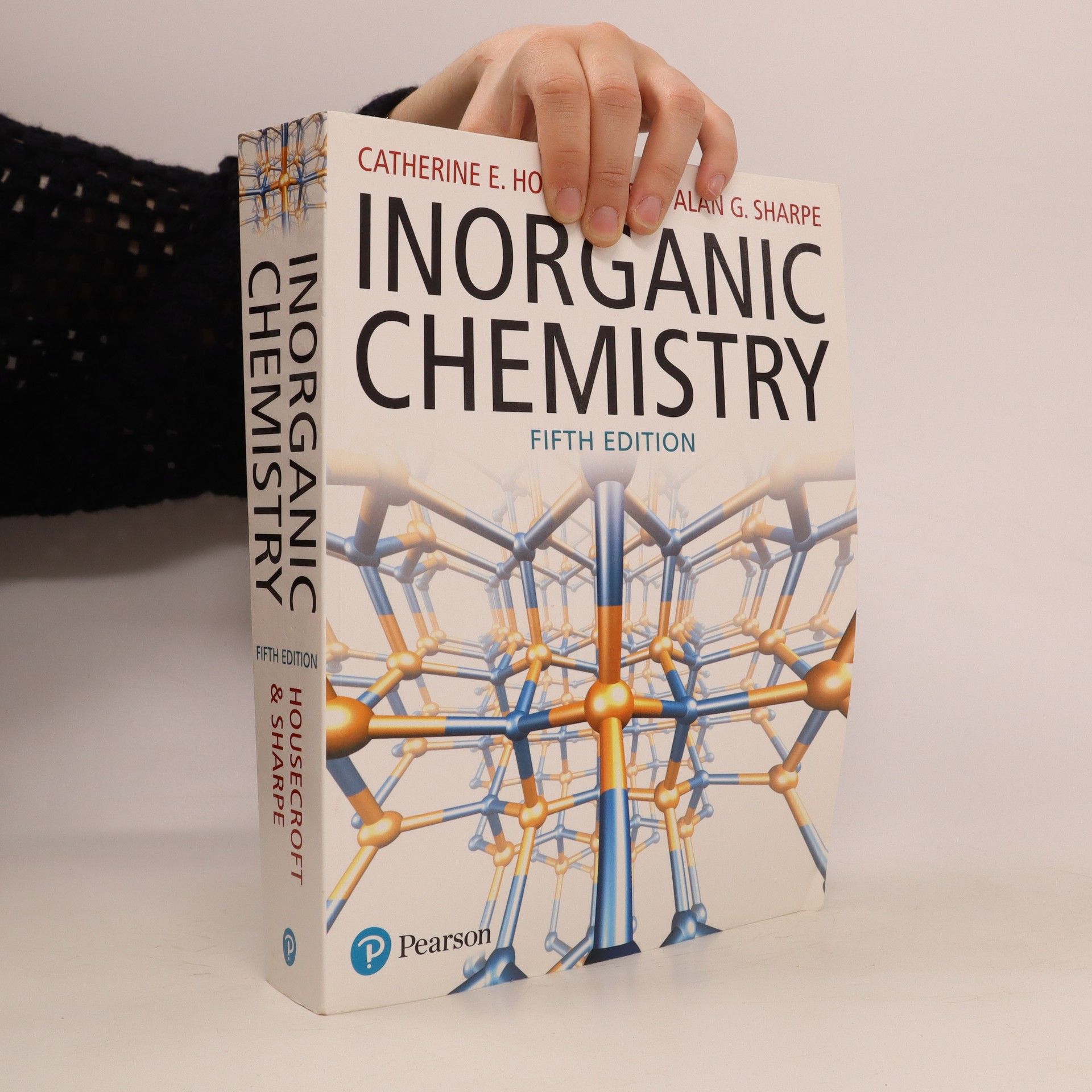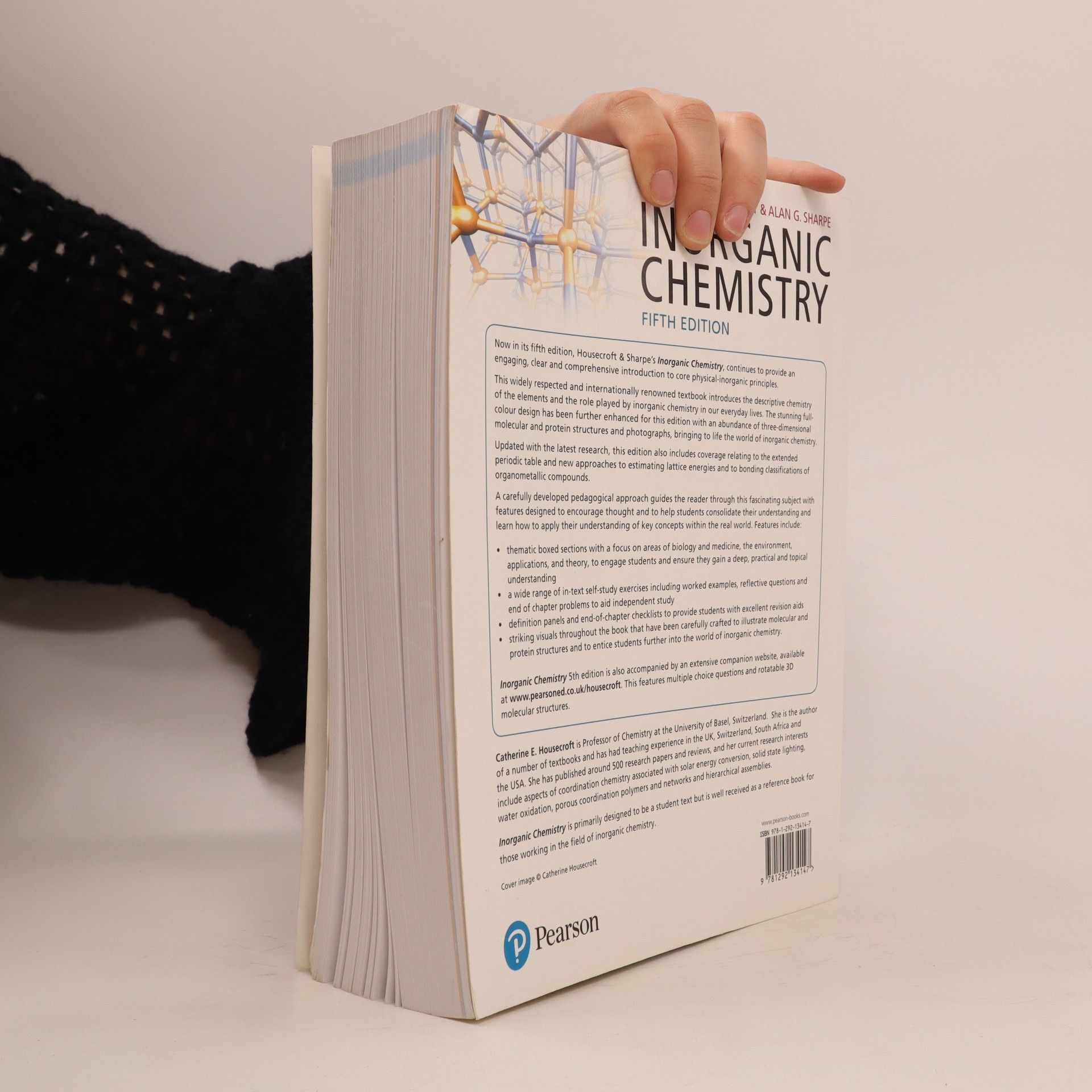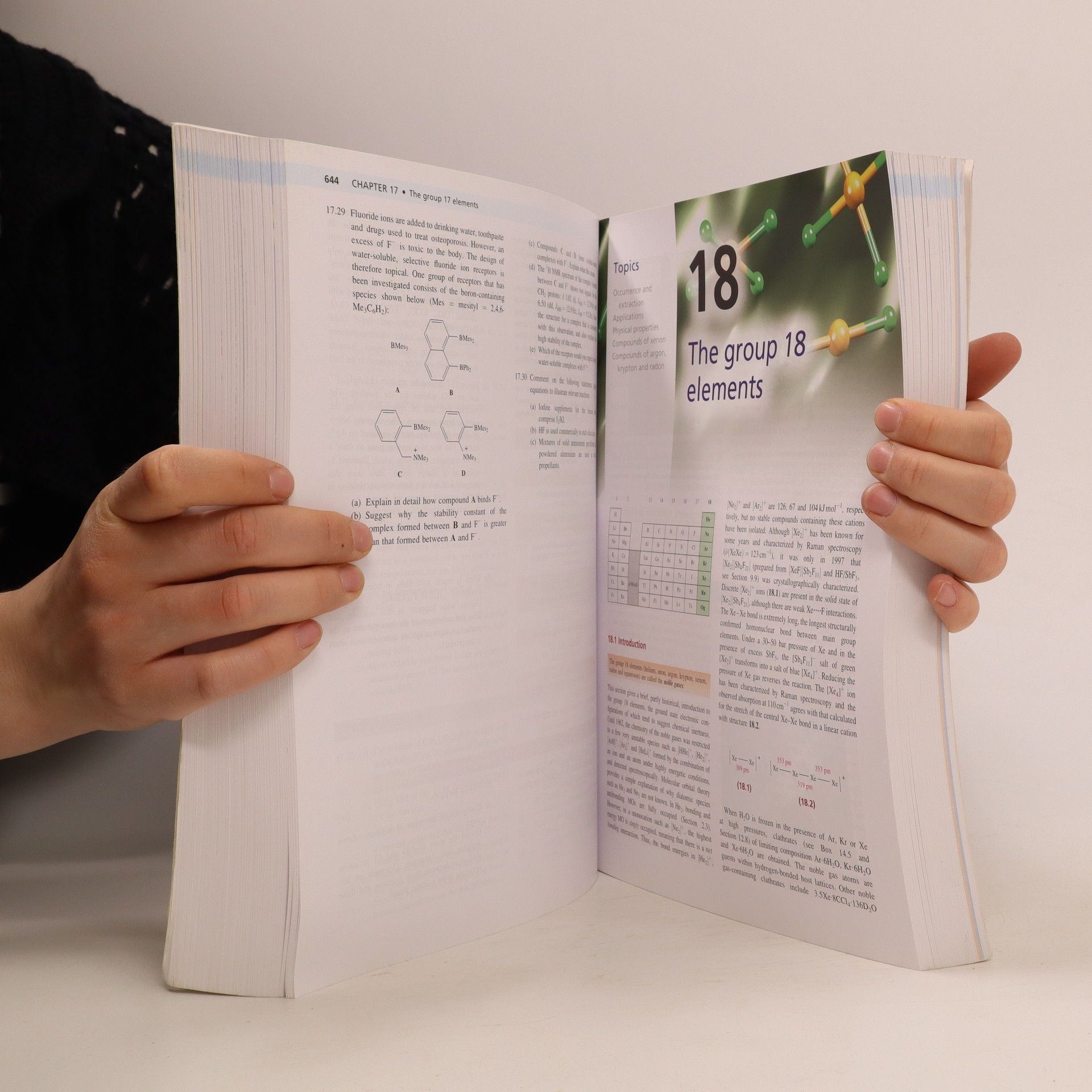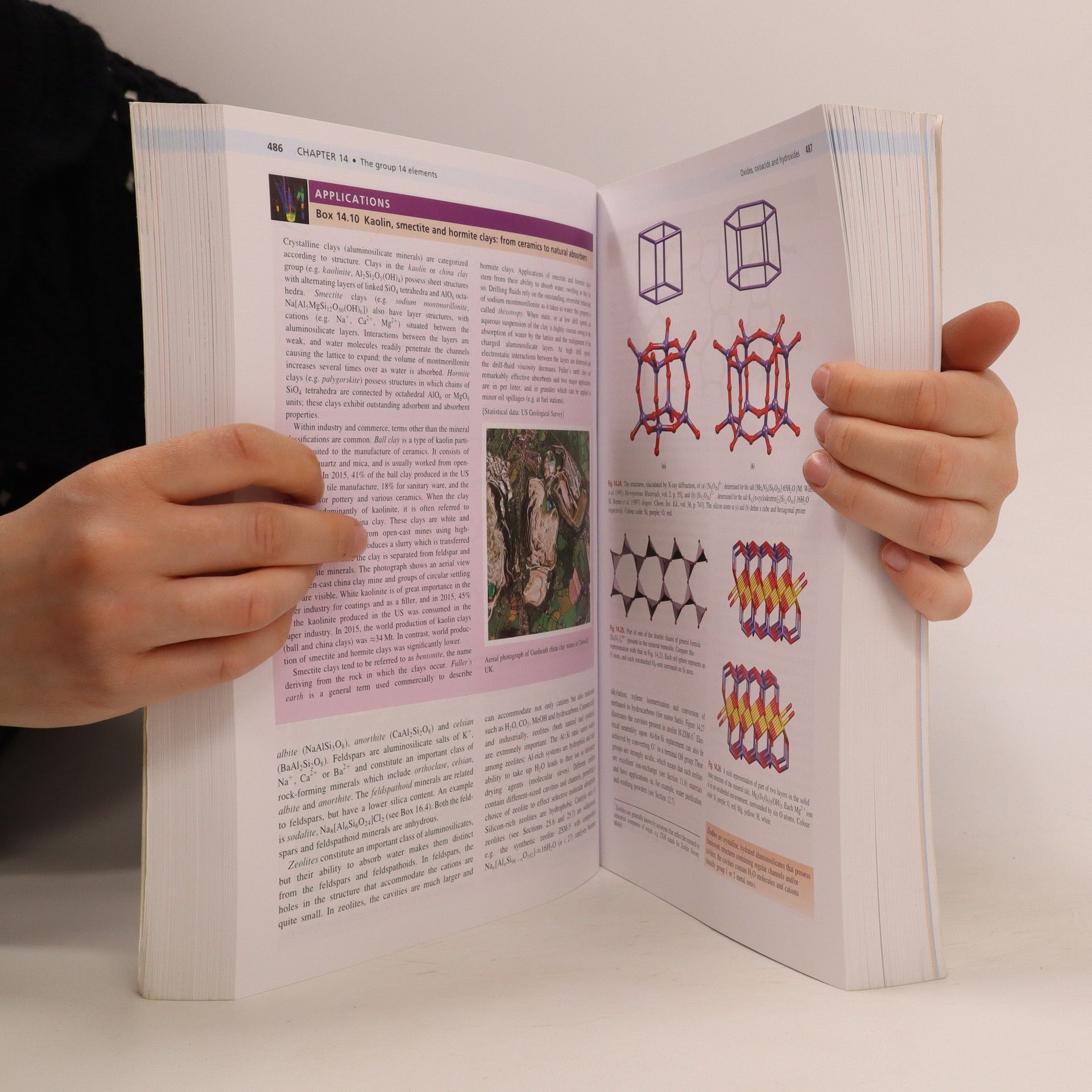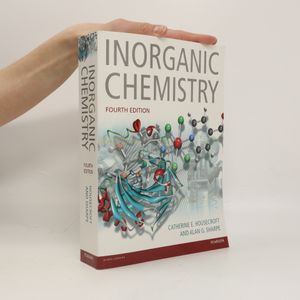Parameters
Categories
More about the book
Now in its fourth edition, Housecroft & Sharpe's "Inorganic Chemistry" is a well-respected and leading international textbook. "Inorganic Chemistry" is primarily designed to be a student text but is well received as a reference book for those working in the field of inorganic chemistry. "Inorganic Chemistry" provides both teachers and students with a clearly written and beautifully illustrated introduction to core physical-inorganic principles. It introduces the descriptive chemistry of the elements and the role played by inorganic chemistry in our everyday lives. Chapters on catalysis and industrial processes, bioinorganic chemistry, and inorganic materials and nanotechnology include many of the latest advances in these fields.There is a new chapter on experimental techniques, and the large number of worked examples, exercises and end-of-chapter problems illustrate a broad range of their applications in inorganic chemistry. The striking full-colour design includes a wealth of three-dimensional molecular and protein structures and photographs, enticing students to delve into the world of inorganic chemistry. Throughout its four editions, "Inorganic Chemistry" has successfully given both teachers and students the tools with which to approach the subject confidently and with enjoyment. Environmental issues linked to inorganic chemistry, topics relating inorganic chemistry to biology and medicine, and the applications of inorganic chemicals in the laboratory, industry and daily life form the basis of a wide range of topic boxesin the book, helping students to appreciate the importance and relevance of the subject. A strong pedagogic approach is at the heart of "Inorganic Chemistry" . While worked examples take students through calculations and exercises step by step, the sets of self-study exercises and end-of-chapter problems reinforce learning and develop subject knowledge and skills. The end-of-chapter problems include sets of 'overview problems', and problems entitled 'inorganic chemistry matters', which use everyday material to illustrate the relevance of the material in each chapter. Definitions panels and end-of-chapter checklists offer students excellent revision aids. Further reading suggestions, from topical articles to recent literature papers, encourage students to explore topics in more depth. Supporting thefourthedition Companion Website available at www.pearsoned.co.uk/housecroft featuringmultiple-choice questions and rotatable 3-D molecular structures. A "Solutions Manual," written by Catherine E. Housecroft, with detailed solutions to all end-of-chapter problems within the text is available for separate purchase, ISBN978-0-273-74276-0. New to this edition Recent advances in basic inorganic chemistry. A new chapter detailing experimental techniques. Discussions of nuclear properties are introduced in relevant sections in the bookrather than in a dedicated chapter. Reordering of chapters dealing with organometallic chemistry and catalysis. Improved coverage of ionic liquids, sustainable energy, solid state devices, superconductors and graphene. Many new self-study exercises and end-of-chapter problems. Updated statistical data. Throughly revised topic boxes" environment, biology and medicine, applications" and "theory." Catherine E. Housecroft is Professor of Chemistry at the University of Basel, Switzerland. She is the author of a number of textbooks and has had teaching experience in the UK, Switzerland, South Africa and the USA. She has published over 400 research papers and reviews, and her current research interests include aspects of coordination chemistry associated with solar energy conversion, solid state lighting, water oxidation and porous coordination polymers and networks. "
Book purchase
Inorganic chemistry, Catherine E. Housecroft, A. G. Sharpe
- Language
- Released
- 2018
- product-detail.submit-box.info.binding
- (Paperback)
Payment methods
- Title
- Inorganic chemistry
- Language
- English
- Authors
- Catherine E. Housecroft, A. G. Sharpe
- Publisher
- Pearson
- Released
- 2018
- Format
- Paperback
- ISBN10
- 1292134143
- ISBN13
- 9781292134147
- Category
- Chemistry
- Description
- Now in its fourth edition, Housecroft & Sharpe's "Inorganic Chemistry" is a well-respected and leading international textbook. "Inorganic Chemistry" is primarily designed to be a student text but is well received as a reference book for those working in the field of inorganic chemistry. "Inorganic Chemistry" provides both teachers and students with a clearly written and beautifully illustrated introduction to core physical-inorganic principles. It introduces the descriptive chemistry of the elements and the role played by inorganic chemistry in our everyday lives. Chapters on catalysis and industrial processes, bioinorganic chemistry, and inorganic materials and nanotechnology include many of the latest advances in these fields.There is a new chapter on experimental techniques, and the large number of worked examples, exercises and end-of-chapter problems illustrate a broad range of their applications in inorganic chemistry. The striking full-colour design includes a wealth of three-dimensional molecular and protein structures and photographs, enticing students to delve into the world of inorganic chemistry. Throughout its four editions, "Inorganic Chemistry" has successfully given both teachers and students the tools with which to approach the subject confidently and with enjoyment. Environmental issues linked to inorganic chemistry, topics relating inorganic chemistry to biology and medicine, and the applications of inorganic chemicals in the laboratory, industry and daily life form the basis of a wide range of topic boxesin the book, helping students to appreciate the importance and relevance of the subject. A strong pedagogic approach is at the heart of "Inorganic Chemistry" . While worked examples take students through calculations and exercises step by step, the sets of self-study exercises and end-of-chapter problems reinforce learning and develop subject knowledge and skills. The end-of-chapter problems include sets of 'overview problems', and problems entitled 'inorganic chemistry matters', which use everyday material to illustrate the relevance of the material in each chapter. Definitions panels and end-of-chapter checklists offer students excellent revision aids. Further reading suggestions, from topical articles to recent literature papers, encourage students to explore topics in more depth. Supporting thefourthedition Companion Website available at www.pearsoned.co.uk/housecroft featuringmultiple-choice questions and rotatable 3-D molecular structures. A "Solutions Manual," written by Catherine E. Housecroft, with detailed solutions to all end-of-chapter problems within the text is available for separate purchase, ISBN978-0-273-74276-0. New to this edition Recent advances in basic inorganic chemistry. A new chapter detailing experimental techniques. Discussions of nuclear properties are introduced in relevant sections in the bookrather than in a dedicated chapter. Reordering of chapters dealing with organometallic chemistry and catalysis. Improved coverage of ionic liquids, sustainable energy, solid state devices, superconductors and graphene. Many new self-study exercises and end-of-chapter problems. Updated statistical data. Throughly revised topic boxes" environment, biology and medicine, applications" and "theory." Catherine E. Housecroft is Professor of Chemistry at the University of Basel, Switzerland. She is the author of a number of textbooks and has had teaching experience in the UK, Switzerland, South Africa and the USA. She has published over 400 research papers and reviews, and her current research interests include aspects of coordination chemistry associated with solar energy conversion, solid state lighting, water oxidation and porous coordination polymers and networks. "
